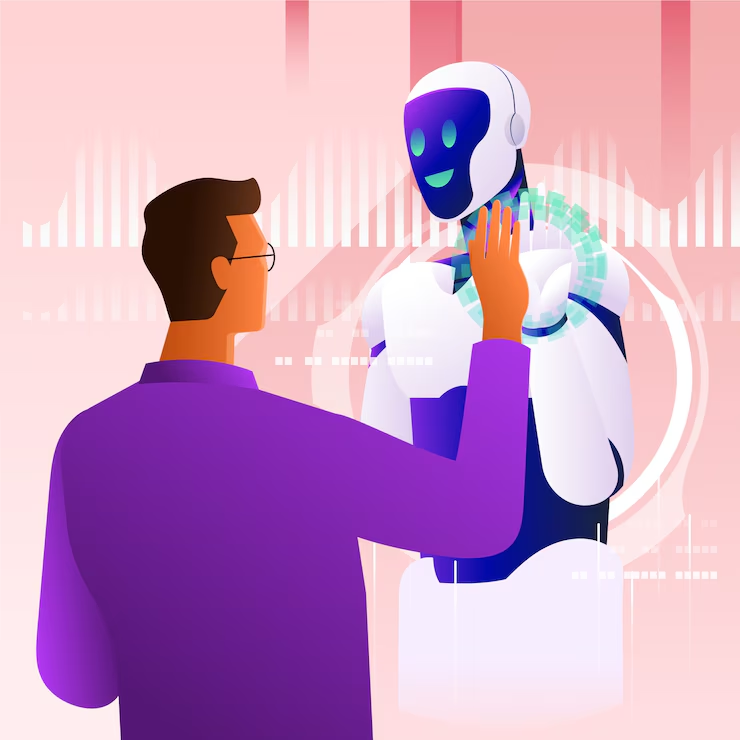Science is no longer confined to the ivory towers of academia or the high-tech labs of major corporations. Today, everyday people are making significant contributions to scientific research, thanks to the rise of the citizen scientist. Powered by advancements in artificial intelligence (AI), citizen scientists are now equipped with tools that enable them to participate in groundbreaking research and make meaningful discoveries. In this blog, we’ll explore how AI is empowering citizen scientists and transforming the landscape of scientific research.
Who is a Citizen Scientist?
A citizen scientist is a non-professional who voluntarily contributes to scientific research. These individuals, often driven by curiosity and a passion for discovery, engage in various activities such as data collection, analysis, and experimentation. Citizen scientists come from all walks of life and can be students, retirees, hobbyists, or anyone with an interest in science.
The Role of AI in Citizen Science
Artificial intelligence has opened up new possibilities for citizen scientists by providing tools that make complex tasks more accessible. Here’s how AI is transforming citizen science:
- Data Collection and Analysis: AI-powered apps and platforms enable citizen scientists to collect and analyze data with ease. For example, AI algorithms can process images, sounds, and environmental data, identifying patterns and anomalies that would be challenging for humans to detect. This capability allows citizen scientists to contribute high-quality data to research projects.
- Crowdsourcing Research: AI facilitates the aggregation and analysis of large datasets collected by citizen scientists. Platforms like Zooniverse use AI to manage and analyze data from thousands of volunteers, accelerating the pace of research and enabling discoveries that would be impossible with a smaller team.
- Accessibility and Usability: AI tools are designed with user-friendly interfaces, making it easy for anyone to participate in scientific research. These tools often include tutorials and guides, helping citizen scientists learn and apply scientific methods without needing advanced technical knowledge.
Examples of AI-Powered Citizen Science Projects
- Galaxy Zoo: In this project, volunteers help classify galaxies by analyzing images captured by telescopes. AI algorithms assist by pre-processing images and highlighting areas of interest, making the classification process faster and more accurate. The contributions of citizen scientists have led to the discovery of previously unknown galaxy types and improved our understanding of the universe.
- e-Bird: A project by the Cornell Lab of Ornithology, eBird allows bird watchers to record their sightings and contribute to a global database of bird observations. AI analyzes the data to track bird populations, migration patterns, and habitat use. This information is crucial for conservation efforts and understanding the impacts of climate change on bird species.
- Folding@home: This distributed computing project involves volunteers running simulations of protein folding on their home computers. AI models analyze the results to understand protein structures and develop treatments for diseases like Alzheimer’s, cancer, and COVID-19. Citizen scientists contribute computing power, helping researchers process massive amounts of data.
- Project NOAH: This mobile app encourages users to document wildlife by taking and uploading photos. AI algorithms identify the species and contribute to a global database of biodiversity. This project helps scientists monitor ecosystems and track changes in wildlife populations, supporting conservation efforts worldwide.
Benefits of AI-Powered Citizen Science
- Scalability: AI enables citizen science projects to scale up, involving thousands or even millions of participants. This scalability increases the volume and diversity of data collected, enhancing the quality and scope of research.
- Cost-Effectiveness: Citizen science powered by AI is cost-effective, as it leverages the collective efforts of volunteers without requiring significant financial investments. This democratization of science makes research more inclusive and accessible.
- Engagement and Education: AI-powered citizen science projects engage the public in scientific research, fostering a greater appreciation for science and encouraging lifelong learning. Participants gain valuable skills and knowledge, contributing to a more scientifically literate society.
- Accelerated Discovery: By harnessing the power of AI and the contributions of citizen scientists, research projects can progress more rapidly. This acceleration leads to quicker discoveries and solutions to pressing global challenges.
How to Get Involved as a Citizen Scientist
- Find a Project: Numerous platforms and organizations offer citizen science projects in various fields. Websites like Zooniverse, SciStarter, and CitizenScience.gov list opportunities where you can contribute to ongoing research.
- Learn and Participate: Many projects provide training materials, tutorials, and community support to help you get started. Take advantage of these resources to understand the project’s goals and methods.
- Contribute Data: Whether it’s taking photos, recording observations, or running simulations, your contributions matter. Follow the project’s guidelines to ensure your data is accurate and useful.
- Engage with the Community: Join forums, attend webinars, and participate in discussions with other citizen scientists and researchers. Sharing your experiences and insights can enhance the project’s success and foster a sense of community.
Conclusion
The rise of the citizen scientist, empowered by AI, is transforming scientific research and opening up new possibilities for discovery. By making advanced tools accessible to everyone, AI is democratizing science and enabling individuals from all backgrounds to contribute to meaningful research. Whether you’re passionate about astronomy, wildlife conservation, or medical research, there’s a citizen science project for you. Embrace the power of AI and join the movement to make a difference in the world through science. Together, we can tackle global challenges and uncover new knowledge that benefits us all.

